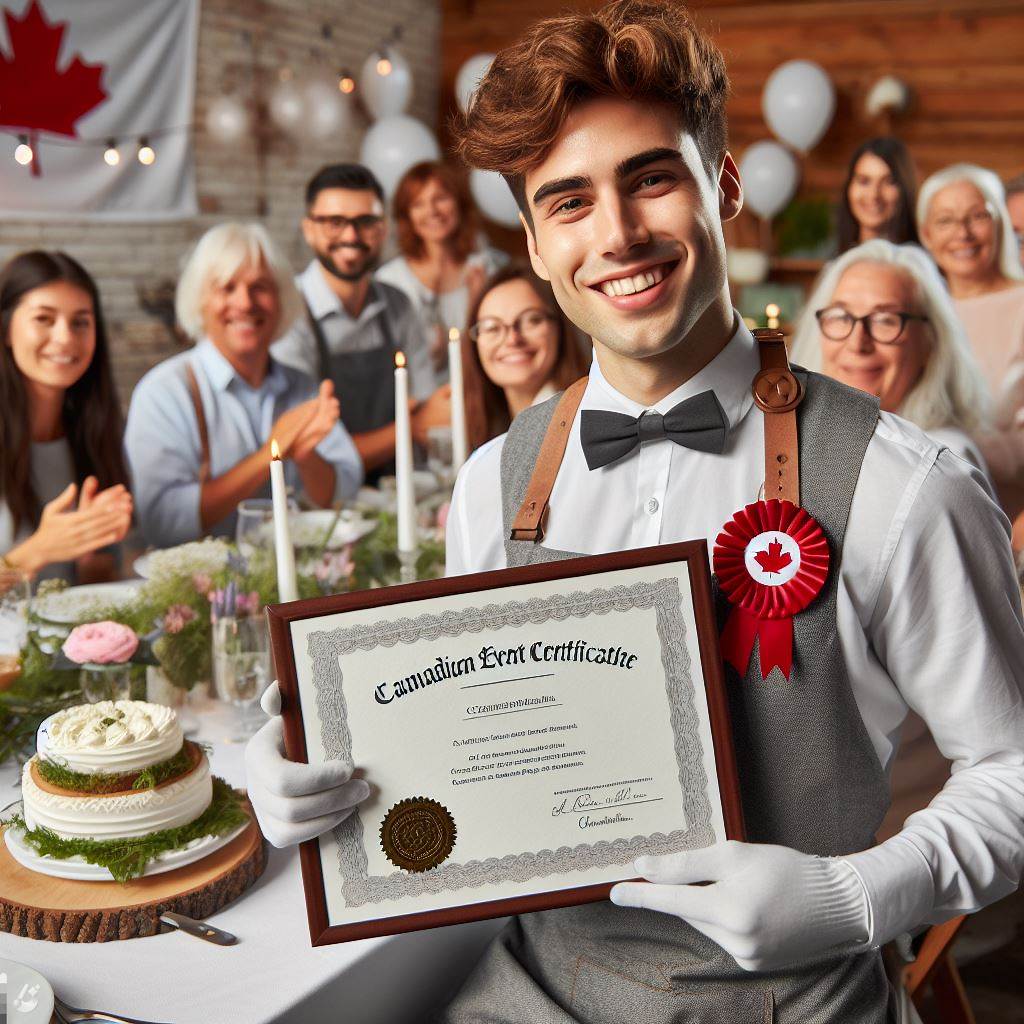Introduction
Navigate Canada’s diverse seasons with ease! Explore essential tips for crafting unforgettable events that embrace the country’s unique climate and culture.
Seasonal event planning in Canada
Seasonal event planning in Canada is a topic that requires consideration due to its unique challenges and opportunities.
The seasonal event planning in Canada requires careful consideration of weather conditions.
Winter events can include ice festivals and skiing competitions, while summer brings outdoor concerts and festivals.
Adapting to diverse climates ensures successful and enjoyable experiences for attendees throughout the year.
Importance of understanding the unique challenges and opportunities for Canadian planners
It is important for Canadian planners to understand these factors to effectively plan and execute successful events.
Understanding Canada’s diverse geography, cultural nuances, and climate variations is crucial for event planners.
Addressing unique challenges, such as winter weather or bilingualism, while embracing opportunities like multicultural celebrations, ensures successful and inclusive events tailored to the Canadian context.
Understanding Canadian Seasons
Overview of the four distinct seasons in Canada
Canada experiences four distinct seasons: winter, spring, summer, and fall.
Each season brings unique planning considerations for event planners.
The impact of weather on event planning
Winter: Cold temperatures, snow, and indoor event options
- Winter in Canada is characterized by freezing temperatures and heavy snowfall.
- Event planners need to consider indoor venues that can accommodate guests during this season.
- Winter-themed events can also be a great option, incorporating snow and ice elements.
Spring: Unpredictable weather, planning for rain or shine
- Spring in Canada can bring unpredictable weather conditions, including rain, snow, and occasional sunshine.
- Event planners should have contingency plans in place to handle outdoor events affected by weather fluctuations.
- Consideration should be given to venues that offer indoor and outdoor spaces for flexibility.
Summer: Outdoor events, festivals, and utilizing longer daylight hours
- Summer is a popular season for outdoor events and festivals due to warm temperatures and longer daylight hours.
- Event planners should take advantage of the favorable weather and plan outdoor activities.
- Utilize natural surroundings, gardens, beaches, and parks to create memorable summer events.
Fall: Changing colors, harvest themes, and indoor/outdoor options
- Fall in Canada is known for its stunning foliage colors, providing a beautiful backdrop for events.
- Harvest-themed events are popular during this season, incorporating elements like pumpkins, apples, and corn.
- Event planners can take advantage of the mild weather and consider indoor/outdoor venues for versatility.
Understanding and considering the impact of Canadian seasons on event planning is crucial to delivering successful events throughout the year.
Each season brings its own unique challenges and opportunities, and event planners must adapt their strategies accordingly.
By understanding the distinct characteristics of each season, planners can select suitable venues and activities, ensuring that guests have a memorable experience regardless of the weather.
Whether it’s embracing the winter wonderland with indoor events or capitalizing on the blissful summer outdoors, event planners in Canada have the advantage of working with diverse and picturesque seasons.
In general, Canadian event planners must stay attuned to the weather patterns and embrace the opportunities presented by the distinct seasons.
Effective planning, flexibility, and creativity are the keys to organizing events that reflect the spirit of each season, creating unforgettable experiences for attendees.
Read: Event Planning Ethics: A Canadian Perspective
Planning Considerations for Each Season
Winter Events
- Selecting suitable indoor venues.
- Coordinating transportation in snowy conditions.
- Incorporating winter-themed decor and activities.
Spring Events
- Preparing for unpredictable weather.
- Incorporating outdoor spaces with alternative indoor options.
- Planning for possible rain or wind contingencies.
Summer Events
- Utilizing outdoor venues and incorporating natural landscapes.
- Managing heat and sun exposure for attendees.
- Incorporating summer-themed activities and entertainment.
Fall Events
- Utilizing changing colors and natural autumn elements in decor.
- Balancing indoor and outdoor options as temperatures cool.
- Incorporating harvest and Thanksgiving themes.
Read: Event Planning: Dealing with Canadian Weather
Budgeting and Financial Considerations
Seasonal demand and pricing fluctuations for venues and vendors
- Research and understand the peak seasons for event planning to anticipate price fluctuations.
- Consider booking venues and vendors during off-peak seasons to receive discounts or lower rates.
- Communicate with venues and vendors early to secure better prices before seasonal demand increases.
- Track historical data to identify patterns in seasonal pricing fluctuations for better budget planning.
- Be prepared for higher costs during peak seasons and adjust your budget accordingly.
Maximizing budget by aligning with seasonal offerings
- Take advantage of seasonal menus and food offerings to save on catering expenses.
- Consider using seasonal decorations and themes to reduce costs on event design and decor.
- Plan outdoor events during favorable weather conditions to save on indoor venue costs.
- Collaborate with local vendors who offer seasonal discounts or promotions.
- Utilize seasonal flowers and greenery for cost-effective and visually appealing floral arrangements.
Alternatives to reduce costs without compromising quality
- Explore alternative event venues such as parks, community centers, or public spaces to reduce rental fees.
- Consider DIY options for event decor and design to save on professional services.
- Opt for digital invitations and event promotion to save on printing and distribution costs.
- Negotiate discounts or flexible payment plans with vendors to better manage your budget.
- Collaborate with sponsors or partners who can provide financial support or in-kind contributions.
Marketing and Promotion
Seasonal-specific marketing strategies and themes
- Create marketing campaigns tailored to each season, incorporating relevant themes and imagery.
- Offer seasonal promotions, discounts, or limited-time offers to encourage attendance or participation.
- Collaborate with local businesses or sponsors to cross-promote seasonal events and increase reach.
- Develop partnerships with influencers or bloggers who specialize in seasonal content to promote your event.
- Utilize seasonal keywords and hashtags in your website content, blog posts, and social media captions.
Unique aspects of each season in promotional materials
- Include visually appealing images that showcase the beauty and distinct characteristics of each season.
- Create engaging videos or GIFs that capture the essence of the season and evoke a sense of anticipation.
- Incorporate seasonal colors, fonts, and design elements in your print and digital promotional materials.
- Highlight the activities, attractions, or experiences that are exclusive to a particular season in your event description.
- Showcase testimonials or reviews from past attendees who praised the seasonal aspects of your event.
Leveraging social media and online platforms to reach target audience
- Identify which social media platforms your target audience frequent the most and focus your efforts there.
- Create a dedicated hashtag for your event that reflects the seasonal theme and encourage attendees to use it.
- Engage with your audience by posting behind-the-scenes content, sneak peeks, or teaser trailers of your event.
- Run online contests or giveaways that tie into seasonal festivities to generate buzz and increase online presence.
- Partner with local influencers or organizations to host live streams or Instagram takeovers related to your event.
By effectively implementing these marketing and promotion strategies, Canadian event planners can maximize their event’s visibility, attract their target audience, and ensure the success of their seasonal events.
Remember, each season offers a unique opportunity to captivate attendees and create unforgettable experiences, so make sure to leverage the distinct characteristics of each season in your marketing materials and promotions.
With thoughtful planning and strategic promotion, your seasonal event is bound to make a lasting impression and become a must-attend affair for years to come.
Read: The Role of Technology in Event Planning in Canada

Tips for Handling Seasonal Challenges
Preparing for unexpected weather conditions
- Monitor weather forecasts regularly to stay informed about any potential changes.
- Have a backup plan in place for outdoor events, such as renting tents or finding alternative indoor venues.
- Consider providing attendees with weather-appropriate items, such as umbrellas or sunscreen.
- Communicate weather updates to attendees ahead of time to ensure they come prepared.
- Work closely with your event team to ensure proper coordination in case of weather-related emergencies.
Building contingency plans for outdoor events
- Create a detailed checklist of everything required for the event, including backup options for each component.
- Have a clear communication plan in place to inform attendees about any changes or cancellations due to weather.
- Invest in sturdy equipment and infrastructure that can withstand different weather conditions, like wind and rain.
- Consider alternative activities or entertainment that can be quickly rearranged in case of unexpected weather disruptions.
- Ensure there are accessible indoor spaces nearby where attendees can seek shelter if needed.
Communicating updates and changes to attendees/vendors promptly
- Use various communication channels, such as emails, social media, and event websites, to disseminate updates.
- Designate a specific person or team responsible for managing and responding to attendee/vendor inquiries promptly.
- Clearly communicate any changes in schedules, locations, or program details to avoid confusion.
- Provide timely updates during the event itself to keep attendees informed about any unexpected changes.
- Consider using mobile apps or text message alerts to quickly inform attendees about last-minute updates.
In essence, planning seasonal events in Canada requires careful attention to weather forecasts, contingency planning for outdoor events, and efficient communication to attendees and vendors.
By preparing for unexpected weather conditions, building contingency plans, and promptly communicating updates, event planners can successfully navigate seasonal challenges and ensure the overall success of their events.
Conclusion
Recap of Important Considerations for Seasonal Event Planning in Canada
In Closing, planning seasonal events in Canada requires careful consideration of various factors.
Unlock Your Career Potential
Visualize a clear path to success with our tailored Career Consulting service. Personalized insights in just 1-3 days.
Get StartedFirstly, understanding the climate and weather patterns in each season is crucial.
This allows for appropriate venue selection, transportation arrangements, and contingency plans.
Secondly, considering the cultural and festive traditions associated with each season can greatly enhance the event’s appeal and create a unique experience for attendees.
Thirdly, incorporating seasonal elements into the event, such as décor, food, and entertainment, adds to the overall ambiance and creates a memorable experience.
Encouragement to Canadian Planners to Embrace the Unique Opportunities Each Season Offers
Canadian event planners should embrace the unique opportunities that each season brings.
Winter offers the chance to host magical winter wonderland events, complete with ice sculptures and hot cocoa stations.
Spring allows for outdoor garden parties amidst blooming flowers and fresh air.
Summer calls for beachside events and outdoor concerts, while fall provides the perfect backdrop for rustic harvest-themed gatherings.
Final Thoughts and Call-to-Action for Readers
Ultimately, seasonal event planning in Canada requires careful consideration of weather, cultural traditions, and incorporating seasonal elements.
By embracing the unique opportunities each season offers, Canadian planners can create unforgettable experiences for their attendees.
So, whether it’s a cozy winter gathering or a vibrant summer soirée, let’s seize the seasons and make every event a moment to remember.
Start planning your next seasonal event today and leave a lasting impression on your guests.
It’s time to embrace the beauty of Canada’s seasons and create magic with every event!




